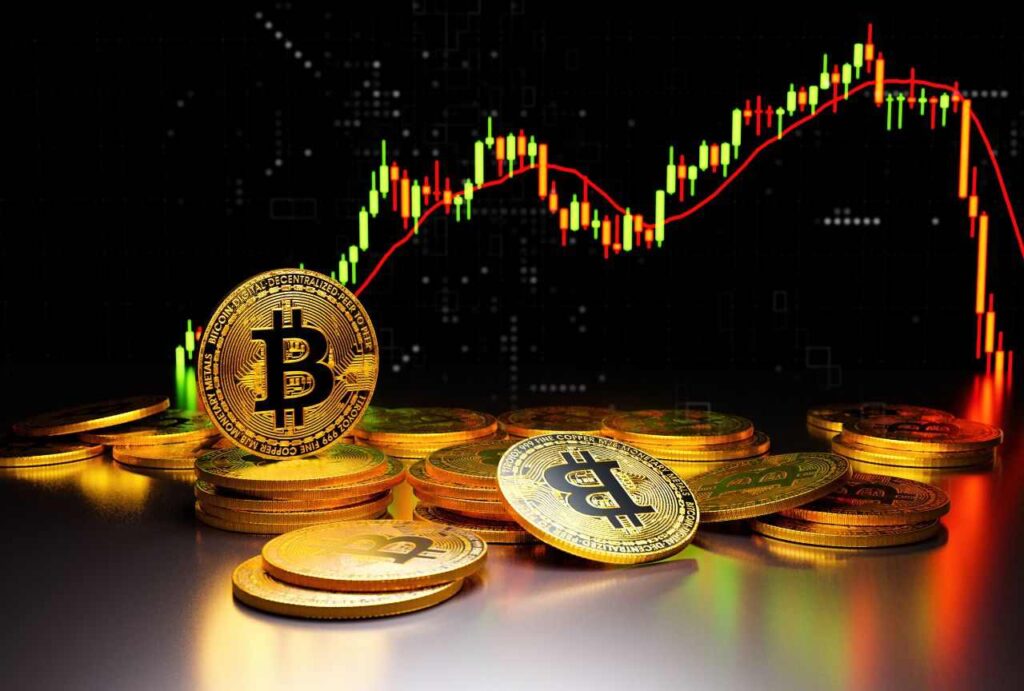Political scandals are often seen as moments of crisis and mistrust, but throughout history, they have also become unexpected turning points that shaped entire sectors. When corruption, deception, or government failures are exposed, public pressure, regulation, and innovation often follow. These events push societies to rebuild systems and, in the process, give birth to new industries that change the way economies work.
Many of today’s most influential industries have roots in political or corporate misconduct. The connection between political scandal and innovation may not be obvious at first glance, but it reveals how public outrage and loss of trust can fuel lasting transformation.
Here are ten fascinating moments when political scandals did more than make headlines, they reshaped markets, created new professions, and defined the industries we rely on today.
1. Watergate (1972–1974): The Birth of Modern Investigative Journalism
The Watergate scandal remains one of the most significant political turning points in modern history. It began with what seemed like a simple break-in at the Democratic National Committee headquarters in the Watergate office complex in Washington, D.C., in June 1972. What followed revealed a vast system of political espionage, illegal wiretapping, and the abuse of presidential power under the Nixon administration.
As investigations unfolded, two young Washington Post reporters, Bob Woodward and Carl Bernstein, began connecting the dots between the break-in and officials inside the White House. Their pursuit of the story against a background of denial, pressure, and secrecy transformed journalism into a serious tool of political accountability. The exposure of the scandal through persistent reporting led to multiple resignations, criminal charges, and ultimately, President Richard Nixon’s resignation in August 1974.
Watergate reshaped how journalism operated. Before it, much of political reporting relied heavily on official sources and government press releases. After it, media outlets realized that uncovering truth often required deep research, independent verification, and persistence. The scandal gave rise to a new wave of investigative journalism programs, nonprofit watchdogs, and investigative units in major media networks. Journalism schools across the United States started expanding their programs to train professionals in data research, investigative methods, and ethics.
It also changed how governments and corporations viewed transparency. The Freedom of Information Act gained stronger public support, and citizens began to expect greater accountability from public officials. The lasting legacy of Watergate is not only the fall of a president but the creation of a permanent global industry centered on investigative reporting, transparency, and truth verification, an industry that continues to shape public opinion and democracy.

Also Read: 15 Jobs at High Risk of AI (Is Yours On The list?)
2. Iran-Contra Affair (1985–1987): The Rise of Private Military Contracting
The Iran-Contra Affair was one of the most complex and controversial political scandals in U.S. history. It unfolded during Ronald Reagan’s presidency and involved two illegal operations that were secretly connected. Senior officials facilitated the sale of weapons to Iran, which was under an arms embargo, and used the profits from those sales to fund the Contras, a rebel group fighting the socialist Sandinista government in Nicaragua. Both actions violated U.S. law and congressional restrictions.
When the story broke in 1986, it exposed the extent of covert operations being carried out without congressional approval or public knowledge. The political backlash was immense. Investigations and televised hearings revealed a network of secret funding and military involvement that blurred the line between government oversight and private interests. The Reagan administration faced intense scrutiny, and several high-ranking officials were convicted, though many were later pardoned.
The long-term consequence of the Iran-Contra scandal was a shift in how governments managed military and intelligence operations. To avoid similar political exposure, the U.S. and other nations increasingly turned to private military contractors to handle security, logistics, and covert missions. This outsourcing allowed states to conduct sensitive operations with limited public accountability.
By the 1990s and early 2000s, the private defense industry had grown into a powerful global sector. Companies such as Blackwater (later Xe and then Academi), DynCorp, and Halliburton became heavily involved in conflicts across Iraq, Afghanistan, and Africa. Governments relied on these firms not only for combat support but also for training, protection of diplomats, and intelligence gathering
3. Enron Scandal (2001): The Corporate Compliance and Auditing Revolution
The fall of Enron in 2001 stands as one of the most consequential corporate scandals in modern history. Enron was once praised as one of America’s most innovative energy companies, but its success was built on a web of fraudulent accounting practices and financial manipulation. Executives used complex schemes to hide billions in debt and artificially inflate profits, misleading investors, employees, and the public.
The exposure of Enron’s deception sent shockwaves through the financial world. Thousands of employees lost their jobs and retirement savings, and investors faced devastating losses. The company’s collapse also brought down Arthur Andersen, one of the world’s largest accounting firms, which was found guilty of destroying audit documents related to Enron’s financial records.
The scandal revealed deep flaws in corporate governance, auditing transparency, and executive accountability. Public confidence in large corporations plummeted, and there was an urgent demand for reform. In response, the U.S. Congress passed the Sarbanes–Oxley Act of 2002, introducing strict new standards for financial reporting, internal controls, and auditor independence. The law required executives to personally certify financial statements and imposed severe penalties for misconduct.
This legislation effectively created a new industry: corporate compliance and risk management. Companies began hiring compliance officers, establishing ethics departments, and developing systems to ensure transparency in operations. A surge of consulting firms, auditing specialists, and software developers entered the market to help businesses comply with new regulatory requirements.
The Enron scandal also reshaped the auditing profession. Independent auditors faced stronger oversight, and new auditing technologies emerged to detect fraud and irregularities more effectively. Training programs and certifications in compliance, ethics, and financial integrity became highly sought after by professionals worldwide.
What started as a corporate failure ended up transforming global business culture. It made corporate ethics, accountability, and transparency essential to long-term success.
4. The Monica Lewinsky Scandal (1998): The Acceleration of Online Political Media
The Monica Lewinsky scandal was not just a political crisis within the Clinton administration; it also marked a turning point in how news was distributed and consumed. The affair between President Bill Clinton and White House intern Monica Lewinsky became one of the first major political stories to unfold through the internet rather than traditional media channels.
Initially, mainstream newspapers and television networks hesitated to cover the story because of its sensitive nature and lack of confirmed details. However, The Drudge Report, a small online news site at the time, decided to publish leaked information that mainstream media outlets had declined to print. That single decision changed the role of the internet in global journalism.
The Drudge Report’s success demonstrated that online platforms could compete directly with established news organizations in breaking major stories. Readers began turning to the internet for unfiltered and immediate access to political updates. This event accelerated the digital shift in news consumption, pushing traditional outlets to establish their own online presence.
By the early 2000s, digital-first political outlets such as HuffPost, Politico, and Slate emerged, creating new business models for journalism built entirely around online audiences. The Lewinsky scandal showed that the speed and reach of the internet could redefine political communication and influence. It transformed online publishing from an experimental medium into a permanent part of the media landscape.
This transformation also encouraged the growth of online advertising, SEO-driven content strategies, and real-time political analysis. The impact of the Monica Lewinsky scandal continues to be seen today, as digital journalism dominates public discourse and shapes the way politics is covered and consumed.
5. The 2008 Financial Crisis: The Birth of Fintech and Cryptocurrency
The 2008 financial crisis reshaped the global economy and public trust in traditional banking systems. Rooted in years of risky lending, deregulation, and political pressure to expand home ownership, the crisis began when the U.S. housing market collapsed. Financial institutions around the world had invested heavily in mortgage-backed securities, and when those assets failed, entire markets unraveled.
Millions lost homes, jobs, and savings. Public anger grew as it became clear that major banks had been protected through government bailouts while ordinary citizens faced devastating losses. This erosion of trust in centralized financial power created space for innovation in how money could be managed and transferred.
In 2009, an anonymous developer known as Satoshi Nakamoto published the Bitcoin whitepaper. The idea introduced a digital currency independent of governments and banks, using blockchain technology to verify transactions transparently. This marked the birth of the cryptocurrency industry, a direct response to the failures of traditional finance exposed by the crisis.
At the same time, a wave of fintech startups began offering digital financial solutions to make banking more transparent, accessible, and user-driven. Online payment systems, peer-to-peer lending, and mobile banking apps quickly gained popularity. Companies like PayPal, Square, and Revolut became leaders in financial innovation by combining technology with consumer trust.
The crisis also encouraged regulators to tighten oversight, which further accelerated the need for automated financial systems and compliance technologies. Fintech and crypto together reshaped how the public interacts with money, investments, and credit.
What started as a collapse of global financial confidence ended up creating two of the most revolutionary financial sectors of the modern era. The fintech and cryptocurrency industries continue to grow rapidly, representing not just an economic response but also a cultural shift toward decentralization and transparency in finance.

Also Read: 9 Effective Things to Do When You Can’t Make a Decision – Act Right
6. The Snowden Leaks (2013): The Cybersecurity and Privacy Tech Boom
In 2013, former National Security Agency contractor Edward Snowden leaked classified documents revealing extensive government surveillance programs. The disclosures exposed how intelligence agencies were collecting massive amounts of data from citizens, tech companies, and foreign governments under secret monitoring programs.
The revelations caused a global outcry over digital privacy and the boundaries of state surveillance. Governments were forced to confront new questions about security, transparency, and citizens’ rights. For the public, it sparked a growing awareness of how vulnerable personal data could be in the hands of both corporations and state institutions.
In the years that followed, demand for digital privacy protection surged. The cybersecurity industry expanded rapidly, focusing on tools that protect users’ data and prevent unauthorized access. Technologies such as VPNs, end-to-end encryption, and secure communication platforms like Signal and ProtonMail became essential tools for individuals and organizations worldwide.
Tech companies began investing heavily in encryption and user security features, while new startups focused exclusively on privacy solutions. Governments also introduced stricter cybersecurity regulations, leading to the development of compliance and monitoring systems to protect sensitive information.
The Snowden leaks permanently changed how digital safety was perceived. What had once been a niche concern of technology experts became a global priority. Today, cybersecurity is a cornerstone of every major organization, from financial institutions to healthcare systems. The industry’s growth can be traced back to one moment when public exposure of hidden surveillance reshaped digital ethics and corporate responsibility.
7. Cambridge Analytica (2018): The Rise of Data Ethics and Privacy Compliance
The Cambridge Analytica scandal in 2018 became one of the defining moments in the debate over personal data and digital privacy. Investigations revealed that the political consulting firm had harvested data from millions of Facebook users without consent and used it to influence election campaigns through targeted advertising and psychological profiling.
The exposure of this practice highlighted how personal information could be weaponized for political gain. Governments, regulators, and the public demanded stronger protection of digital data. The backlash against both Facebook and Cambridge Analytica led to significant policy changes across the tech industry.
The European Union’s General Data Protection Regulation (GDPR) became a global standard for data protection, forcing companies to handle user data with transparency and consent. Similar legislation began appearing in other regions, including the California Consumer Privacy Act (CCPA). Compliance with these laws required specialized knowledge, giving rise to a new industry focused on data ethics, privacy compliance, and information security consulting.
Businesses started hiring Data Protection Officers (DPOs) and creating internal policies to manage data responsibly. Companies offering compliance software, privacy auditing, and data security services saw massive growth. Training programs and certifications in data governance also became common across the corporate sector.
Beyond regulation, the Cambridge Analytica scandal reshaped consumer expectations. Users began demanding greater control over their personal information, leading to the rise of privacy-focused products and browser extensions. The event shifted data from being an invisible commodity to a protected asset, central to business operations and public trust.
The long-term result was the birth of the modern data privacy economy, a network of professionals, tools, and services dedicated to ensuring transparency and ethical data use. What began as a scandal over political manipulation turned into one of the most significant regulatory and technological movements of the 21st century.
8. The Panama Papers (2016): The Growth of Transparency and Anti–Money Laundering Tech
In 2016, a massive leak of 11.5 million documents from the Panamanian law firm Mossack Fonseca revealed how politicians, business leaders, and global elites used offshore accounts to hide assets and avoid taxes. Known as the Panama Papers, the leak involved data spanning decades and exposed secret financial networks across more than 200 countries.
The revelations caused political turmoil worldwide. Heads of state resigned, investigations were launched, and public outrage over financial secrecy reached new levels. It became clear that existing financial systems lacked the tools and technology to track complex international money movements. Governments, regulators, and banks began investing heavily in systems capable of detecting financial crime more effectively.
This event directly accelerated the growth of the regtech (regulatory technology) and anti–money laundering (AML) industries. Companies began developing sophisticated digital tools that use artificial intelligence and data analytics to identify suspicious financial patterns. These systems helped institutions comply with new transparency regulations and international reporting standards.
Financial watchdog organizations also started partnering with technology firms to trace illicit transactions, exposing networks that were once hidden behind layers of shell companies and offshore jurisdictions. Startups specializing in blockchain analytics, identity verification, and risk assessment emerged as essential players in global finance.
The Panama Papers fundamentally changed how the world views transparency. It forced both public and private sectors to prioritize financial ethics, pushing innovation in compliance and monitoring technology. What began as a scandal of hidden wealth became the foundation for a new technological industry centered on accountability and digital oversight.
9. The Russian Doping Scandal (2015–2019): The Creation of Sports Integrity Analytics
The Russian doping scandal exposed one of the largest organized cheating programs in modern sports history. Investigations revealed that Russian athletes were systematically using banned substances, supported by state-run laboratories and officials who manipulated test results. The scandal affected major international competitions, including the Olympics, and led to widespread suspensions of Russian teams and athletes.
When the truth came to light through whistleblowers and laboratory data analysis, global sports organizations faced an urgent challenge: restoring fairness and trust. Traditional anti-doping methods were no longer sufficient, as the level of sophistication in cheating had evolved far beyond simple testing.
This crisis spurred the development of a new field known as sports integrity analytics. It combines biotechnology, artificial intelligence, and data science to identify patterns and abnormalities in athlete performance data. Specialized companies began using machine learning to analyze thousands of test results, biometric readings, and competition statistics to detect inconsistencies.
The impact extended beyond doping detection. Sports integrity firms started working with betting regulators and esports organizers to identify match-fixing, illegal betting, and corruption. This expansion created an entirely new sector of technology dedicated to safeguarding the ethics of competition.
Today, sports integrity analytics is an essential part of global sports governance. The Russian doping scandal not only reshaped international sports policies but also created a high-tech industry that continues to protect fairness, transparency, and accountability in athletic performance.
10. Volkswagen “Dieselgate” (2015): The Push Toward Electric Mobility and Green Tech
In 2015, Volkswagen was caught using software designed to cheat emissions tests on its diesel vehicles. The company had installed devices that could detect when a car was being tested and temporarily reduce emissions to meet regulatory standards. Once on the road, those same vehicles emitted up to forty times the legal limit of pollutants.
The scandal, later known as Dieselgate, quickly became a global issue. It involved millions of cars across multiple countries and led to billions in fines, legal actions, and public backlash. The exposure of such large-scale deception severely damaged trust in the automotive industry and forced regulators to tighten emissions laws around the world.
In response, the industry underwent a major transformation. Auto manufacturers began investing heavily in electric vehicle (EV) development, battery innovation, and clean energy technology. Governments introduced stricter environmental policies, tax incentives for electric cars, and bans on future production of combustion engines.
The technological race to create cleaner transportation accelerated dramatically after Dieselgate. Companies such as Tesla gained even more momentum, while traditional carmakers like Volkswagen, General Motors, and BMW redirected billions toward electrification projects. Additionally, new industries emerged around emissions testing technology, battery recycling, and green mobility infrastructure.
The Dieselgate scandal became a catalyst for a new era of sustainability and accountability in the automotive sector. It demonstrated that consumer trust could no longer be maintained through marketing alone but through genuine innovation and environmental responsibility.
Scandals expose the weaknesses of systems, but they also reveal where innovation is most needed. Each of these events forced industries, governments, and societies to rethink how power, information, and responsibility are managed. When transparency and accountability fail, progress often begins.



